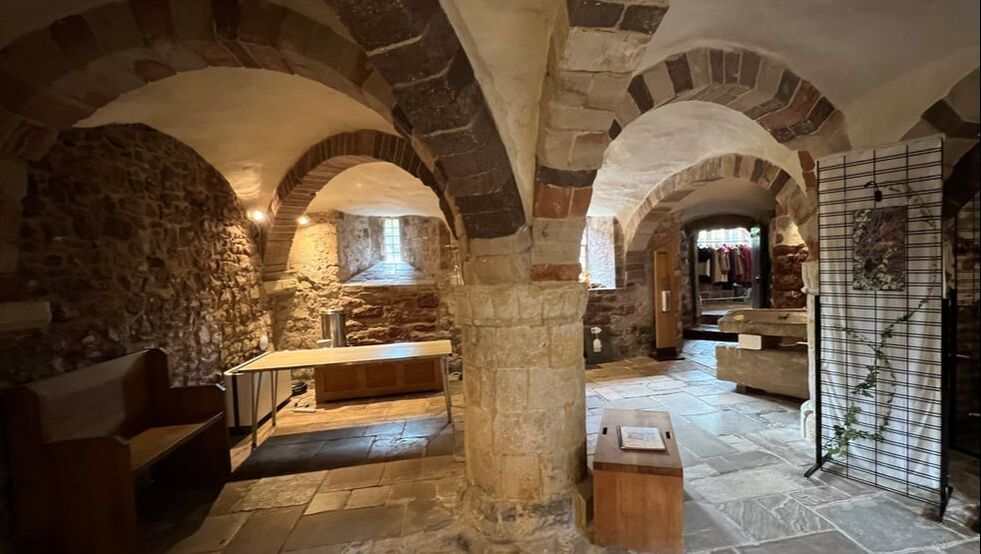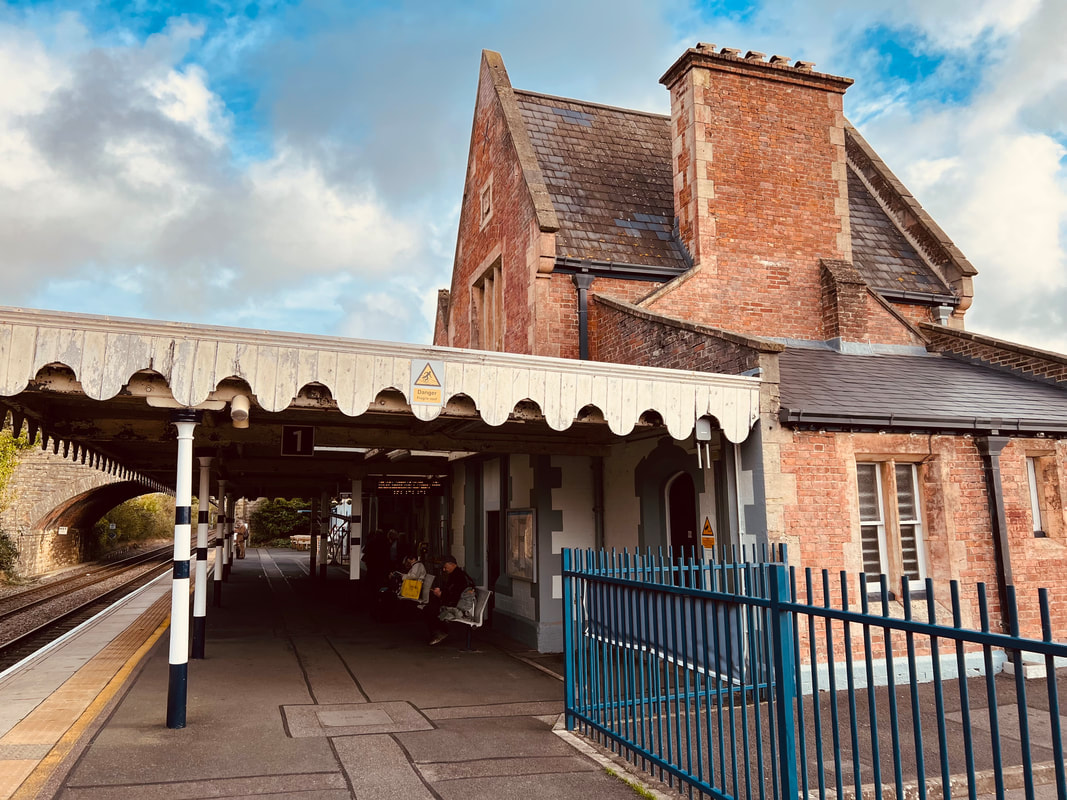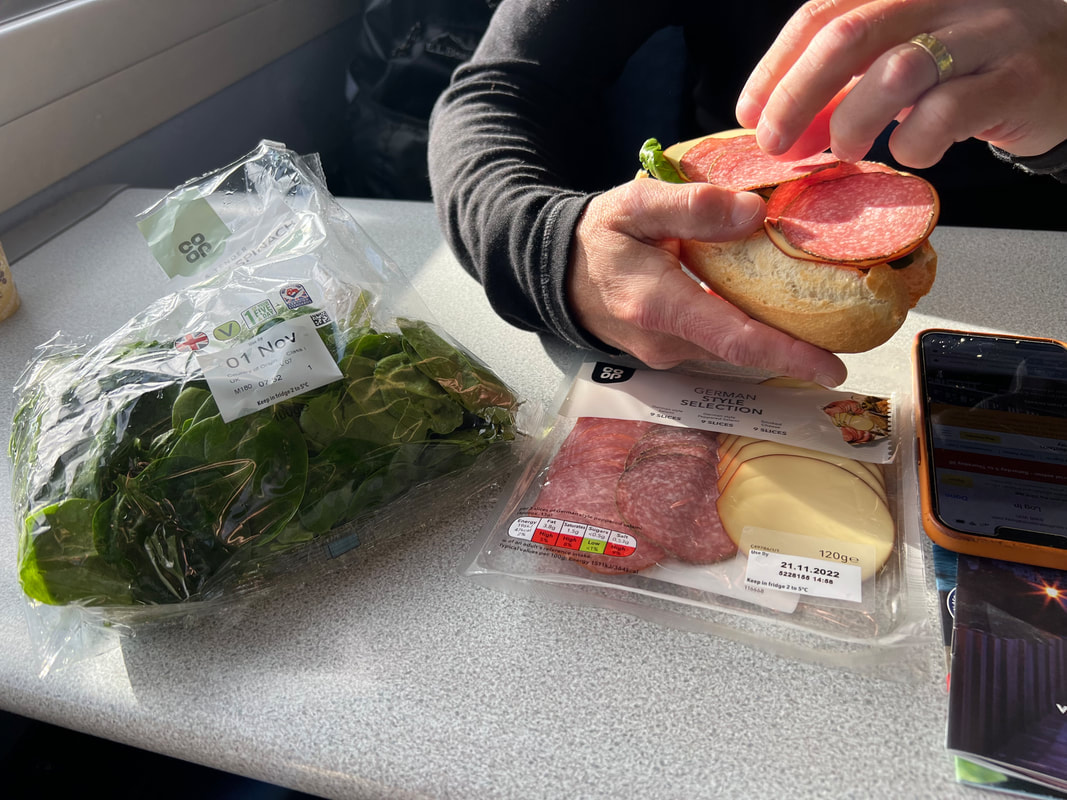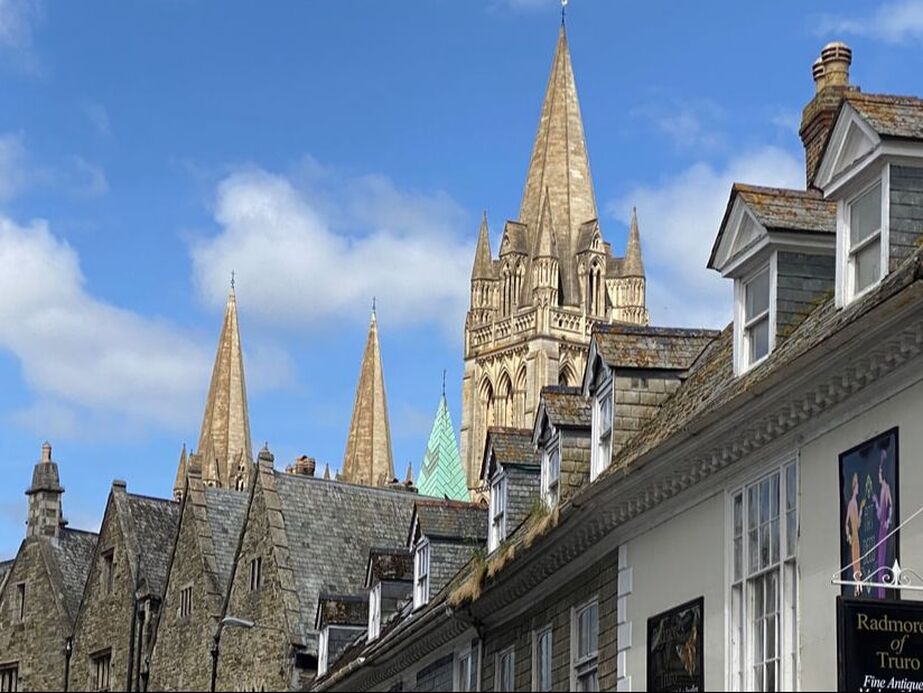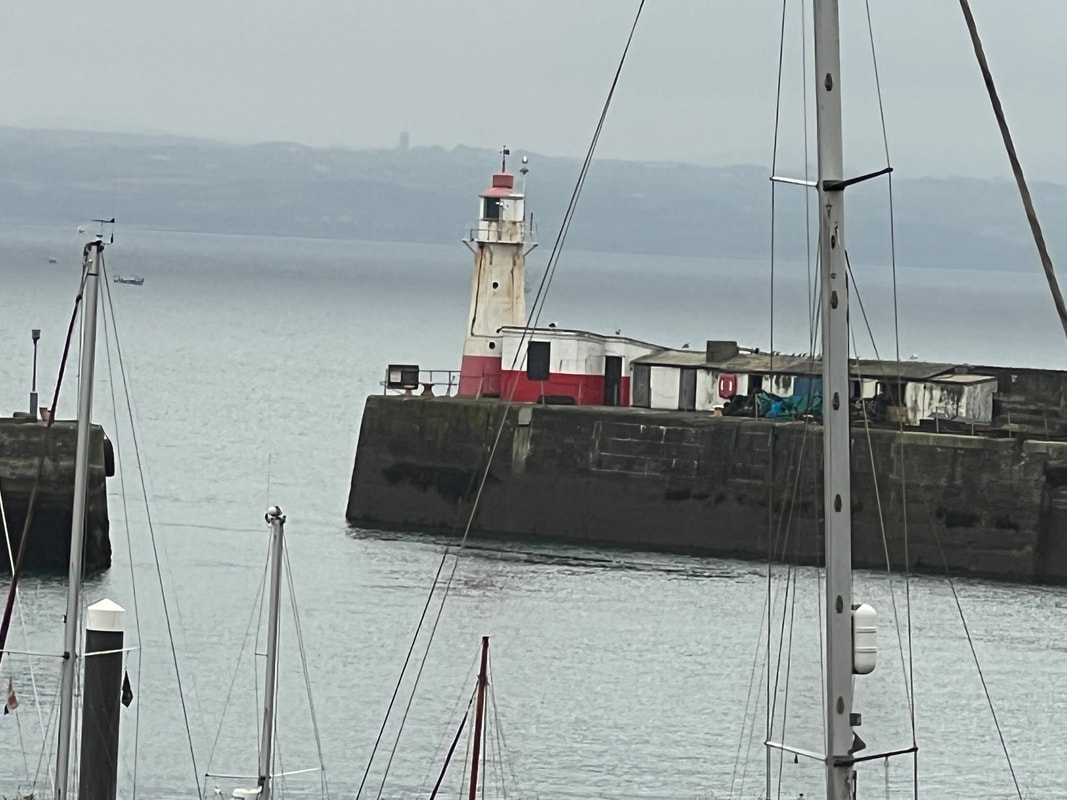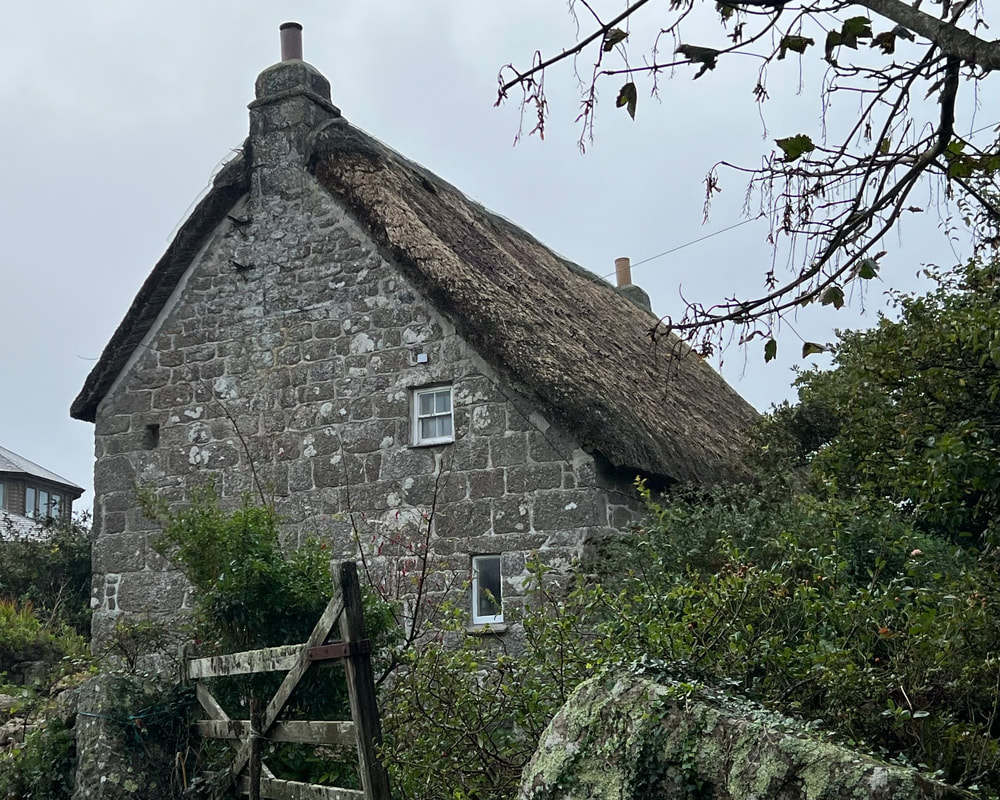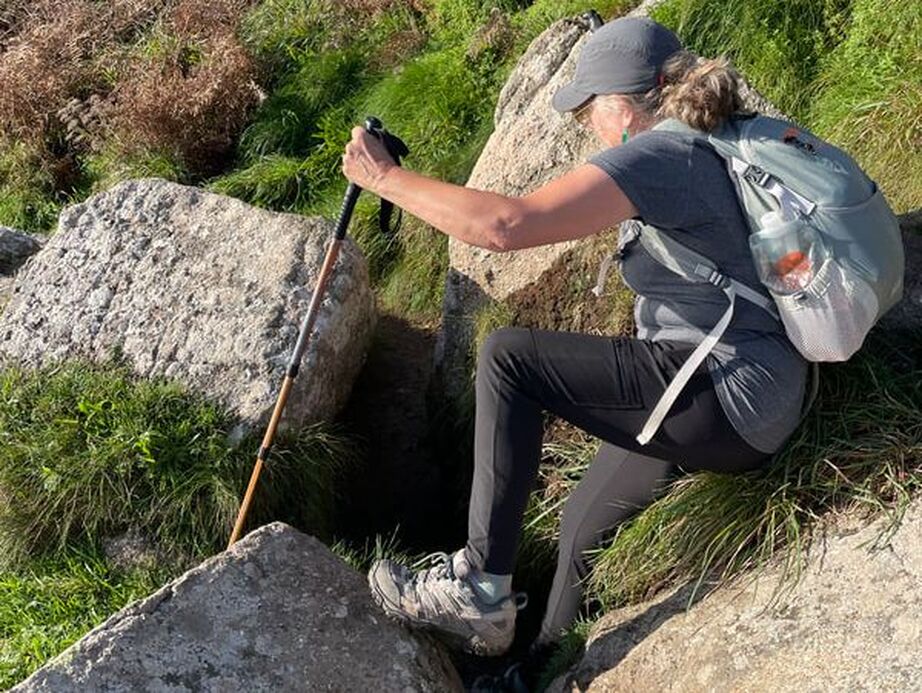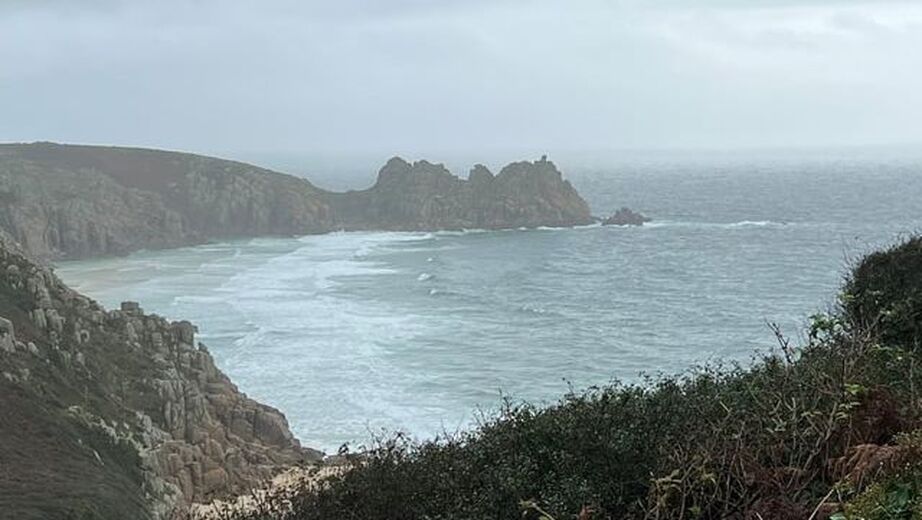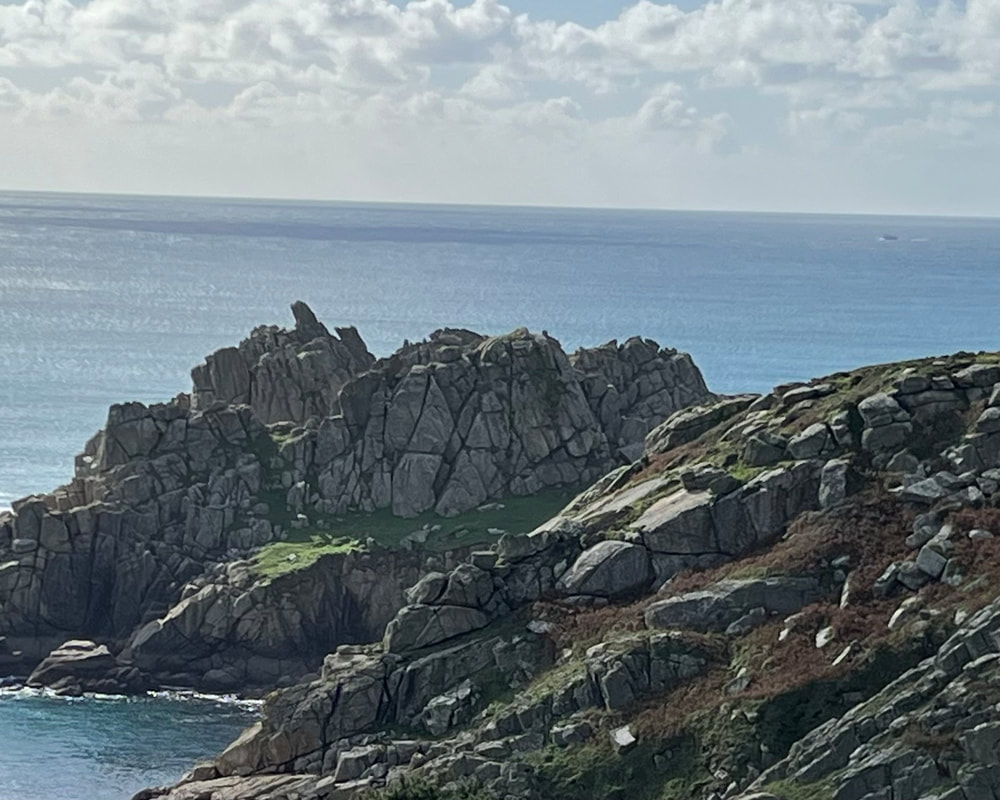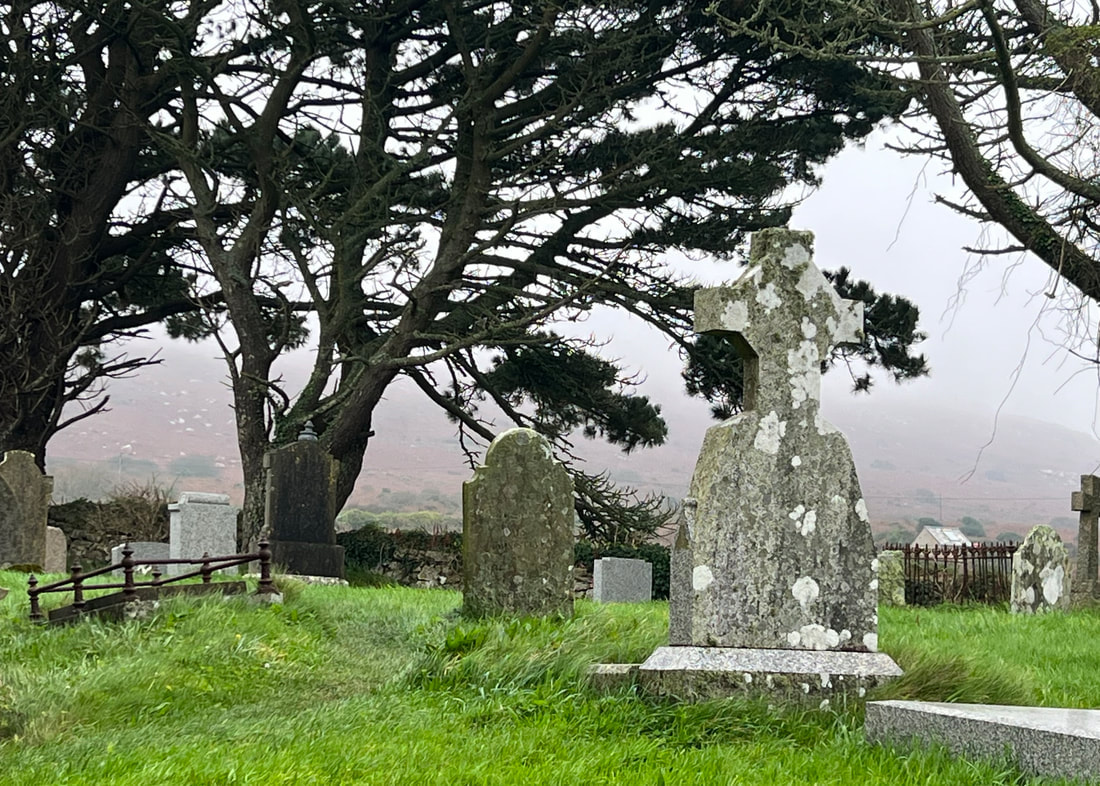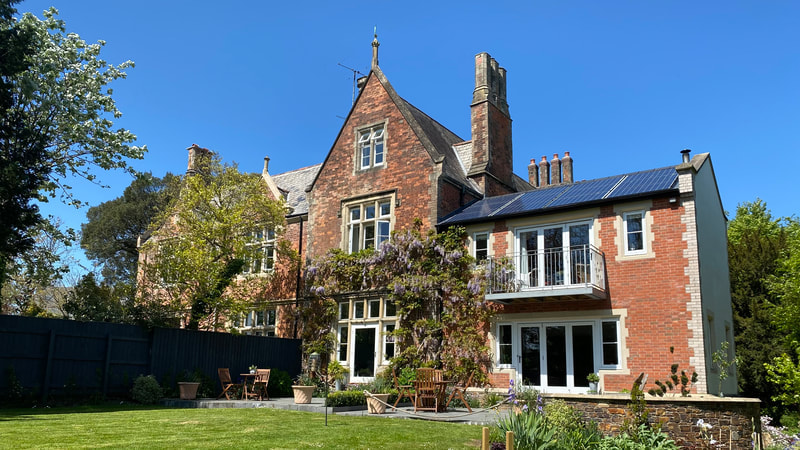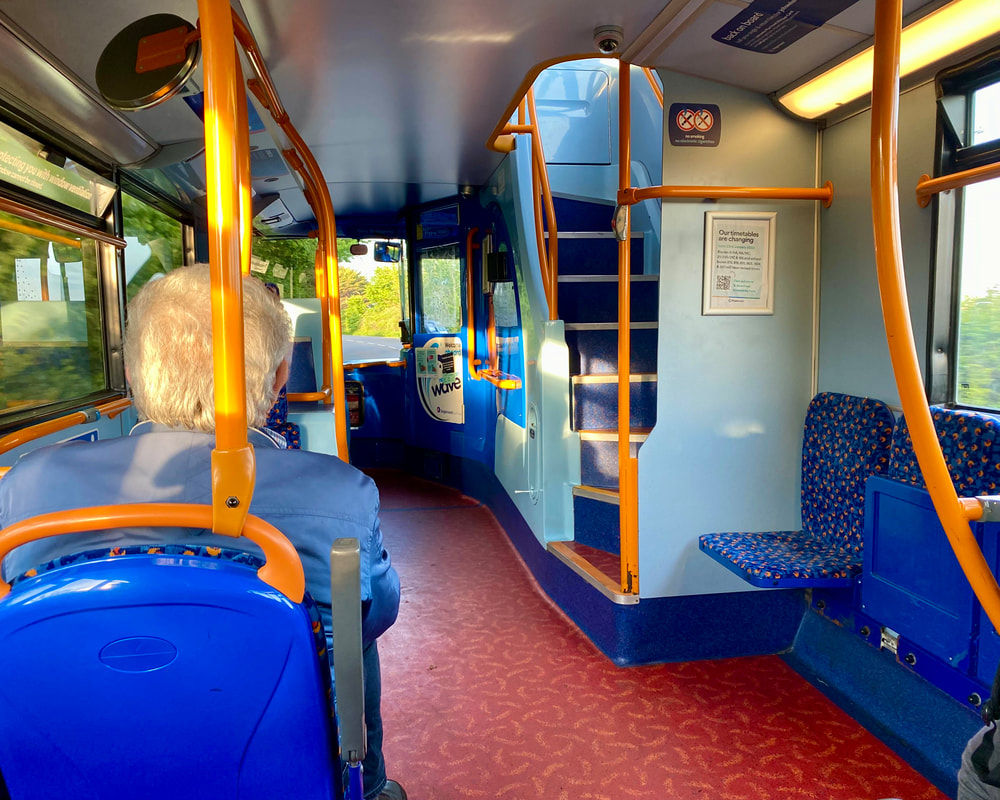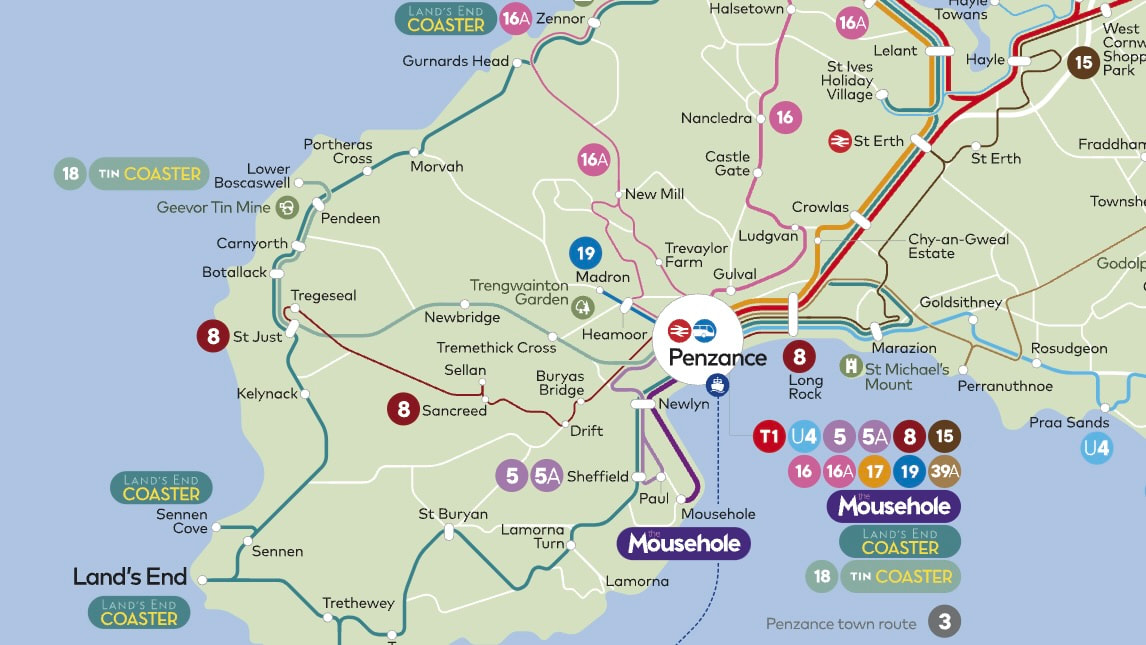|
Founded by William the Conqueror in 1087 as a priory, today the ancient Norman St Nicholas Priory is a museum, reflecting an Elizabethan town house. It's the oldest standing building in Exeter. The cellar (above) dates from early Norman. How cool is that?! We take a bus from Lyme Regis to the Axminster train station, then a train to Exeter. On the way to the station we stop at a Co-Op to pick up lunch fixings, which we promptly eat when we get on the train even though we've technically already eaten breakfast.
We decided to spend the morning in Truro. We know we need to do some grocery shopping and there's a M&S there, plus the city is famous for its "ancient, cobbled and narrow streets with a range of stunning architecture featuring Gothic and Georgian styles", plus lots of little shops, plus a cathedral. What more could you want from a day trip? We learn from our server at the inn that in the UK a "city" means it has a cathedral. So now we know.
That totally inauspicious-looking building at the end of the pier is the Newlyn Tidal Observatory. And it’s here—right here in Newlyn—where the mean sea level for all of the Uk is identified. This measurement forms the starting point for leveling the whole of the UK. And not just sea levels: how we calculate height above sea level has a direct impact on how high we measure mountains and how deep we measure valleys. You can read all about it here but the short answer is: six years.
Treen is a hamlet in far west Cornwall, not far from Porthcurno Beach. (A hamlet is smaller than a village and distinctly without a church. There is almost always a pub though!)
The first records of the name is Tredyn (1304) and Trethyn (1314) which means farm + fort. The hamlet consists of rugged homes and buildings that can easily face down the squalls that sweep savagely across the cliff tops. Everywhere and everything is made of granite. Below is a description of the village by Francis Kilvert, who was an English clergyman whose diaries reflected rural life in the 1870s. .. and we came to a strange bare wild village where everything was made of granite – cottages, walls, roofs, pigs "crows" (sties), sheds, outbuildings, nothing but granite, enormous slabs of granite set up on end and roofed with other slabs." This section of the SWCP winds up and around boulders, through boggy patches, across narrow paths where you have to hold your arms in to avoid the bramble hedges, across streams and stone bridges, and over a rock beach. The word we used most often to describe the hike and the day was "glorious". See the path here.
It rains all night and all day, sometimes quite fiercely. Hoods on most of the time, phones tucked safely away, very few photos. We take a bus to Porthcurno to check out the Minack Theater, then walk the SWCP to Treen, unsuccessfully dodging puddles, getting soaked through to the skin, and missing the turnoff to Treen not once but twice, both times having to backtrack. Eventually we find the path, then Treen, then the 15th century pub Logan Rock, where we try and fail to dry off and get warm. Every part of us and our gear is soaked. Taxi home to hot showers, warm beds, and clothes steaming on the radiators.
Logan Rock is a massive 80-ton granite monster that used to actually rock in the wind. The most famous of Cornwall’s “Logan” or “Logging” (rocking) stones, the rock, balanced precariously on the cliffs overlooking Porthcurno Beach, was famed for its ability to rock gently back and forth with the slightest touch.
Until a couple doofuses came along and ruined it all. The stone church in Zennor was built between the 13th and 15th centuries and includes a tower and small broody graveyard that feels just like out of a Bronte book. See photos here.
We've stayed at Old Vicarage B&B twice now and loved every day of our stays! I couldn't have written the description any better than their website: "The Old Vicarage Bed and Breakfast is a delightful early Victorian house with many original features, spacious guest accommodation...the large secluded garden provides visitors with the feeling of staying in a peaceful countryside setting."
All true. Top notch rooms, service, and breakfast and husband/wife team Sandi & Bryan are warm and welcoming. More info here. We don’t rent a car in the UK, but instead rely on mass transportation. Figuring out the buses took me some time and even after many years, I still find myself double and triple checking the schedules. In addition, although all the schedules are online, along with every other piece of knowledge in the universe, I still take the paper booklet with me, handy for the times when there's no cell service.
|
